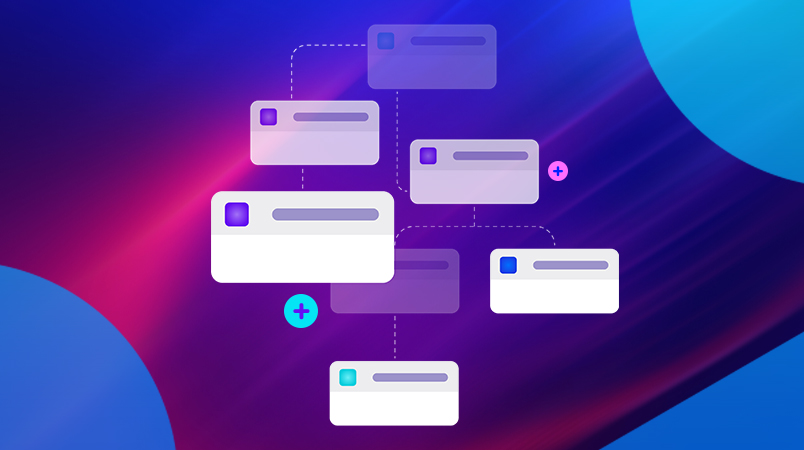The challenges real estate companies face
“Real estate companies receive a huge volume of inquiries every day, but qualifying which buyers are serious and financially eligible takes time. Time most agents simply don’t have,” explains Sameer Ali, Senior Business Development Manager MEA at CM.com. “This leads to wasted effort, missed opportunities, and higher costs per conversion.”
According to both Sameer Ali and Majd Al Jayyousi (Senior Marketing Manager MEA at CM.com), three key challenges stand out for real estate companies when it comes to handling customer inquiries:
Lead qualification: sales teams must manually filter through hundreds of inquiries to identify serious buyers;
Clarity on financing: buyers almost always have questions about down payments or installment plans. And if they don’t get clarity fast, they may walk away;
And multi-channel fragmentation: most communication between potential buyers and real estate agents happens via WhatsApp, but email, phone and website forms are also common. This makes it hard to maintain context and keep conversations organized.
“Add to this the after-sales requests, like maintenance, service charges and documents, and it’s clear why teams are overloaded,” says Sameer Ali.
How AI-agents transform real estate
AI-agents in real estate go far beyond answering FAQs. They act as virtual sales assistants that guide buyers through the entire journey; from the very first inquiry to post-handover support.
HALO transforms the way properties are sold and managed by streamlining processes and speeding up the journey from prospecting to closing a deal. Here are some concrete examples of how real estate companies can use AI-agents for marketing, operations, and service:
Marketing
Lead nurturing: when a prospect drops off (for example, after finding out a property is out of budget) HALO can automatically place them into a nurturing workflow and send updates about new properties that match their criteria;
Multi-language support: AI-agents can engage prospects in multiple languages, which is crucial in expat-heavy markets where buyers come from around the world.
Operations
Instant lead qualification: filter out qualified buyers by having AI-agents ask key questions about budget, timeline, and property type, then forward only high-quality leads to the sales team;
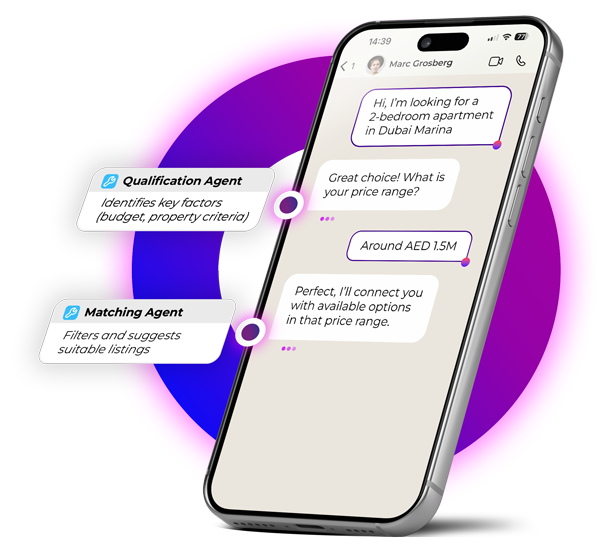
Payment plans: integrate AI-agents with your mortgage calculator to instantly show relevant payment plans and down payment requirements based on the buyer’s specific situation;
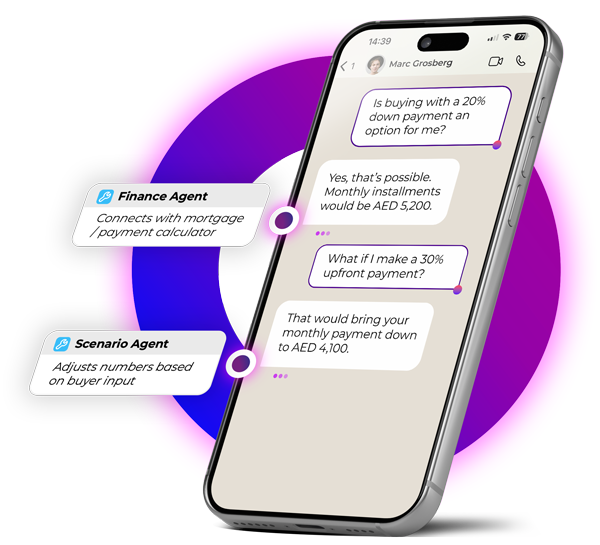
Viewing scheduling: allow prospects to book property viewings in real time (including confirmations and reminders) without the back-and-forth of calls or emails.
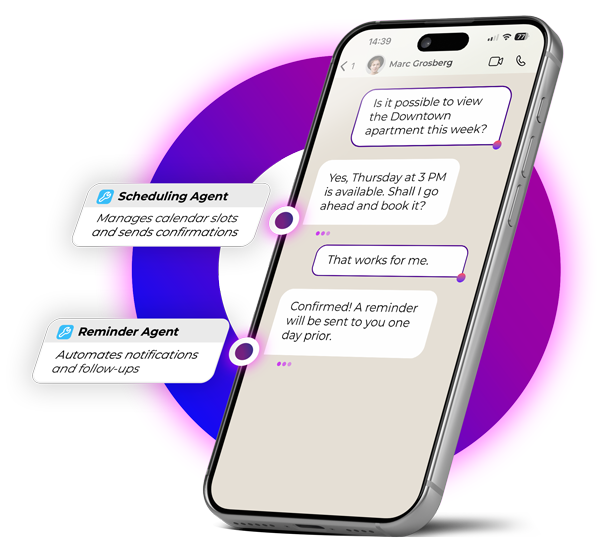
Service
After-sales support: AI-agents can handle maintenance requests, service charge questions, and document retrieval, reducing workload for the team and keeping buyers satisfied even after the deal is closed.
“The real value of HALO is that it covers the full lifecycle,” says Sameer. “From lead capture to after-sales assistance, it keeps buyers engaged and moves them smoothly through the process.”
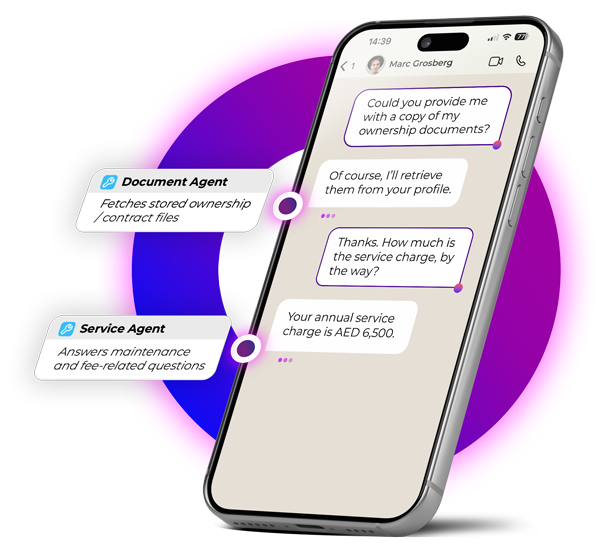
From fragmented conversations to one seamless experience
As a real estate company, you need to make it as easy as possible for buyers to reach you through the channels that are most convenient to them. Whether that’s WhatsApp, Facebook, Instagram or live chat. While offering multiple contact options is essential, it also creates the risk of fragmented conversations - making it harder to maintain a smooth customer experience.
HALO enables you to deploy AI-agents on all these channels, instantly handling inquiries, qualifying leads, and answering questions 24/7. When a query requires human support, the conversation is seamlessly handed over to a human agent in CM.com’s Service Cloud. “Agents can see the full conversation history across channels, including a clear summary of the AI-agent’s interactions,” says Sameer Ali. “That way, they have complete context from the start, can respond faster, and deliver a smooth, consistent experience for every buyer.”
Keeping the human touch
One common concern is that AI might replace the personal element that’s so important in real estate. “Adding an AI-agent doesn’t mean you lose personal service,” explains Majd Al Jayyousi. “HALO can be instructed to speak in your brand’s tone of voice and hand over to a human agent whenever needed. For example, during negotiation or final deal closing. This hybrid approach means your team spends less time on repetitive tasks and more where human expertise matters most.”
Start small, scale fast
According to Sameer, adopting AI doesn’t mean a massive transformation on day one. “You can start with one use case, like lead qualification or viewing scheduling, and expand from there,” says Sameer. “Once you prove the value internally, it’s easy to scale up and automate more steps of the journey.” HALO also integrates seamlessly with internal and external CRM systems and channels, so your team can keep working with the tools they are familiar with, while benefiting from AI-driven efficiency.
Majd concludes: “The real strength of HALO lies in the combination of technology and human service. And the AI-agents you can build with it are so much more than just chatbots. They are full-service virtual assistants that help real estate teams convert faster, reduce manual work, and deliver a premium buyer experience. They make sure no opportunity is lost.”




